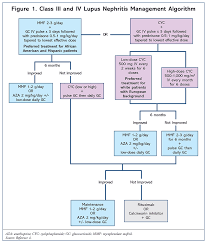
Homeopathic Treatment of Systemic Lupus Erythematosus
or SLE
SLE often abbreviated to SLE or lupus, is a systemic autoimmune disease (or autoimmune connective tissue disease) that can affect any part of the body. As occurs in other autoimmune diseases, the immune system attacks the body's cells and tissue, resulting in inflammation and tissue damage. It is a Type III hypersensitivity reaction caused by antibody-immune complex formation.
SLE most often harms the heart, joints, skin, lungs, blood vessels, liver, kidneys, and nervous system. The course of the disease is unpredictable, with periods of illness (called flares) alternating with remissions. The disease occurs nine times more often in women than in men, especially in women in child-bearing years ages 15 to 35, and is also more common in those of non-European descent.
In childhood-onset SLE, there are several clinical symptoms more commonly found than in adults, including malar rash, ulcers/mucocutaneous involvement, renal involvement, proteinuria, urinary cellular casts, seizures, thrombocytopenia, hemolytic anemia, fever, and lymphadenopathy.
Childhood systemic lupus erythematosus generally presents between the ages of 3 and 15, with girls outnumbering boys 4:1, and typical skin manifestations being butterfly eruption on the face and photosensitivity.
The classic presentation of a triad of fever, joint pain, and rash in a woman of childbearing age should prompt investigation into the diagnosis of SLE.
Causes of SLE:
Systemic lupus erythematosus (SLE) is an autoimmune disease, which means the body's immune system mistakenly attacks healthy tissue. This leads to long-term (chronic) inflammation.
The underlying cause of autoimmune diseases is not fully known.
SLE is much more common in women than men. It may occur at any age, but appears most often in people between the ages of 10 and 50. African Americans and Asians are affected more often than people from other races.
SLE may also be caused by certain drugs.
Symptoms of SLE:
Symptoms vary from person to person, and may come and go.
Other common symptoms include:
Other symptoms depend on what part of the body is affected:
Treatment of SLE
Treatment for lupus depends on your signs and symptoms. Determining whether your signs and symptoms should be treated and what medications to use requires a careful discussion of the benefits and risks with your doctor. The medications most commonly used to control lupus include:
Nutrition and Supplements:
Homeopathic Treatment of SLE:
Most immune system disorders affect the whole body and therefore the conventional modes of treatment are often ineffective. They give relief but only temporarily till the effect of the medicines last and symptoms reappear sooner or later. For treating such autoimmune disorders holistic treatment like Homeopathy is ideal.
Homoeopathy is a therapeutic technique which treats sick people by stimulating the body’s own defence mechanism. Homoeopathy primarily attends to the goal of augmenting the person’s own inherent defenses. Homoeopathy can also calm the overactive immune system to attain health. Homoeopathy aims to create a balance in the body, by addressing whatever the abnormality in the body.